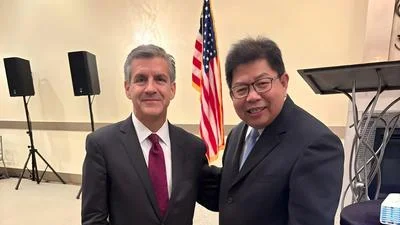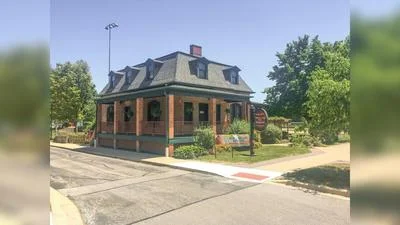State Senator Seth Lewis | Illinois General Assembly
State Senator Seth Lewis | Illinois General Assembly
By State Senator Seth Lewis
Chicago's leadership faces scrutiny as they call on suburban taxpayers to "take a leap of faith" in managing the future of public transit. With a history of financial mismanagement, the trust needed for such a partnership is questioned.
Illinois transit systems, including Metra, PACE, and the Chicago Transit Authority, face a $760 million financial gap next year. The proposition is to dismantle the Regional Transportation Authority and consolidate these entities into one. This would create a mega-agency controlled by a single board, with Chicago and Suburban Cook County leaders aiming for a simple majority of votes.
This governance model could see Chicago and Suburban Cook determining fare rates and service decisions for suburban systems without substantial input from the suburbs. Collateral counties—DuPage, Kane, Lake, McHenry, and Will—would have limited influence over decisions affecting their commuters.
In a Senate Transportation Committee hearing, a former CTA board member advocated for trusting Chicago with this power, emphasizing the need for faith in the city's decision-making.
Mayor Brandon Johnson's administration is noted for frequent state assistance requests, including a billion-dollar bailout for Chicago Public Schools and similar requests for a new stadium and transit debt relief. Despite current tensions, historically, Chicago worked in tandem with suburbs to boost regional growth and transport efficiency. Previous collaboration between city and suburbs contributed to Illinois' transport dominance and economic competitiveness.
Equitable governance reflecting the shared economic interests of city and suburbs is crucial. Proposals leaning towards Chicago control are viewed as power grabs, risking regional stability. Action is warranted to address the fiscal challenge, but solutions must involve balanced authority and responsibility from all parties involved in public transit governance.
Standard procedure includes joint decision-making, not unilateral control. The fiscal road ahead requires cooperation, not faith, from suburban taxpayers. Leadership must rebuild trust through accountable and fair solutions, respecting suburban voices.






 Alerts Sign-up
Alerts Sign-up